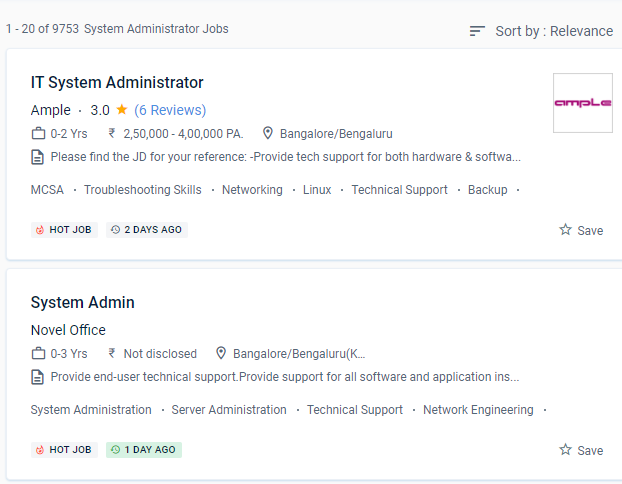System Administration Training by Experts
Our Training Process

System Administration - Syllabus, Fees & Duration
MODULE 1
- System administration introduction, policies, overview, UNIX history and basis
MODULE 2
- File systems and disks
MODULE 3
- Software installation concepts
MODULE 4
- Multi users basics, politics, policies and ethics
MODULE 5
- Automating administrative tasks
MODULE 6
- Networking
MODULE 7
- Backup and disaster recovery
MODULE 8
- DNS
MODULE 9
- SMTP, HTTP
MODULE 10
- Configuration management
MODULE 11
- Distributed computing
MODULE 12
- SNMP, monitoring
MODULE 13
- System security
This syllabus is not final and can be customized as per needs/updates





 Some people excel at determining the company's technology needs as information systems managers. It is their responsibility to ensure that computer systems and related services work smoothly. You'll also learn how to manage and configure servers, as well as how to manage PCs, user information, and user productivity using industry tools.
.
To digitally connect clusters of computers, they create local area networks (LANs) and wide-area networks (WANs).
They set up the network card (NIC) so that data can be sent and received appropriately.
When signals halt, system administrators alter cables to repair the transmission media. Information technology (IT) experts execute the work of systems administration for a company. Information security managers are given more duties when it comes to protecting sensitive data from hackers. You now understand what system administration entails, as well as the functions that system administrators execute and the talents that system administrators possess.
Some people excel at determining the company's technology needs as information systems managers. It is their responsibility to ensure that computer systems and related services work smoothly. You'll also learn how to manage and configure servers, as well as how to manage PCs, user information, and user productivity using industry tools.
.
To digitally connect clusters of computers, they create local area networks (LANs) and wide-area networks (WANs).
They set up the network card (NIC) so that data can be sent and received appropriately.
When signals halt, system administrators alter cables to repair the transmission media. Information technology (IT) experts execute the work of systems administration for a company. Information security managers are given more duties when it comes to protecting sensitive data from hackers. You now understand what system administration entails, as well as the functions that system administrators execute and the talents that system administrators possess.



















































































